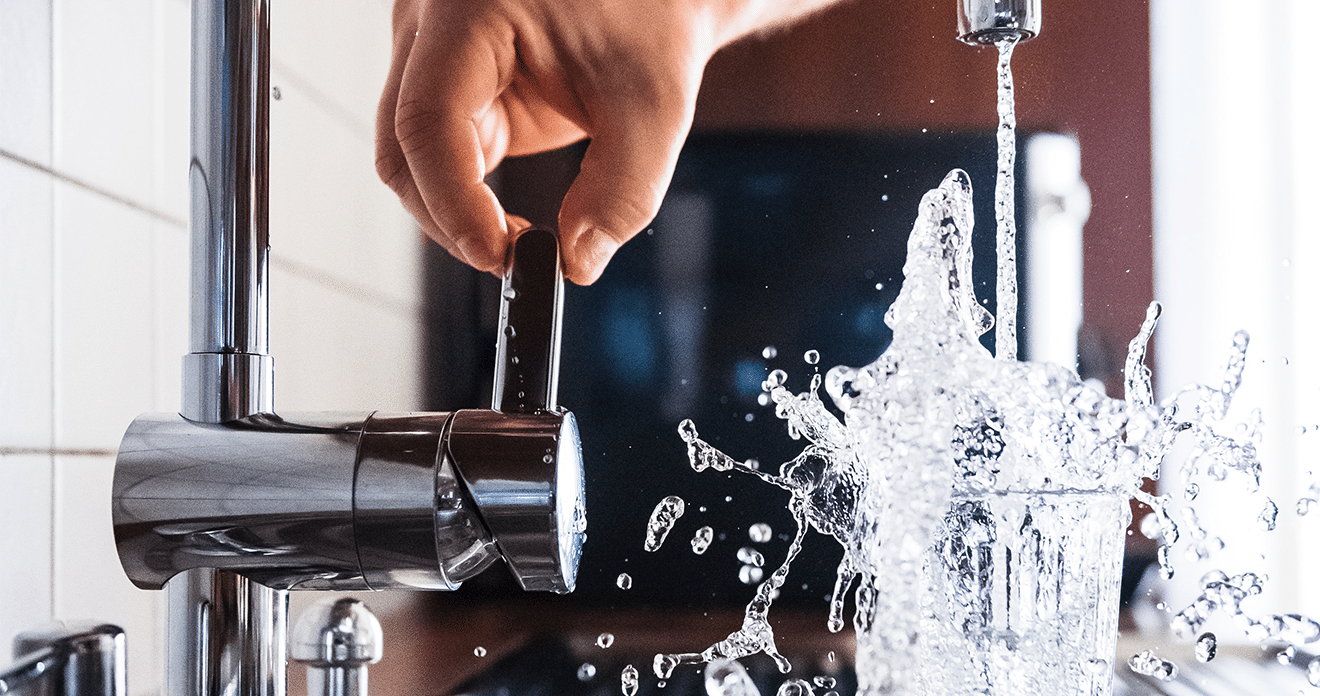Greener Restaurant and Bar policies: Time to focus on water wastage

I was in a well-known chain of bars a few weeks ago and, while waiting for a drink with a friend, I noticed the washing up sink in the corner behind the counter. Unattended and without any dishes in, the tap was running on full blast and the sink was filled with water.
At first I assumed it was an oversight but, on closer inspection, it became apparent that it was deliberate. The sink had an adapted, six or seven inch high plug, which ensured that water went no lower than a certain level and, sure enough, one of the staff was at the sink within a couple of minutes to wash up some glasses. In the two hours that I was there, the tap was never turned off and I found myself thinking just how much water was being consumed during the course of an entire evening across the 40-strong portfolio of bars in the chain.
As efficient as the practice might be for washing dishes, some quick maths tells me that, if each bar within the chain is adopting the same practice, the entire portfolio is burning through 14,400 litres of water per hour. Moreover, the practice reinforces the view that many in the UK hold; namely that we have an unlimited supply of water. In most cases, water in the UK is free and we only pay for its delivery rather than the water itself. The fact that water is so readily and cheaply available means that the type of practice the above mentioned bar adopts is not a unique example. The reality, however, is that in the next 20-25 years, the UK is going to encounter significant issues with our consumption of water and, by 2050 have insufficient supplies to meet demands.
The issue
Many will have heard of Cape Town enduring severe shortages of water such that, in 2018, it faced ‘Day Zero’; the day that the taps would run dry. Less (outside of the US) will have heard of the severe scarcity of water that the State of California is facing right now. The causes of scarcity are wide ranging and, to a certain extent, can be identified as being unique to particular parts of the world but there are some common causes that can be reduced to the following simple formula:
Exponential population growth + an increase in global wealth + wide scale undervaluing of water = scarcity
For the last 5 years, the World Economic Forum has identified water scarcity as one of the top five most impactful global risks we face. In the UK, the head of the Environment Agency last year warned that water scarcity represented an ‘existential threat’ to the country saying that “We need water wastage to be as socially unacceptable as blowing smoke in the face of a baby or throwing your plastic bags into the sea”. For that to happen, there will undoubtedly need to be legislative intervention in the near future; something that food and beverage operators will need to start planning for.
Legislative intervention
There are a number of ways that the government could look to control water consumption, each of which would present different challenges for restaurants, bars and pubs. Those changes could be any one or more of the following:
- Enforced restrictions on consumption
During the ‘Day Zero’ crisis in Cape Town, water usage was restricted to 50 litres of water per person, per day. Although those restrictions were especially low given the extreme circumstances the city faced, the UK could look to introduce a less drastic cap on consumption which would impact the bigger users of water in the hospitality industry.
- Introduction of fee tariff for water
In Israel, and elsewhere in the world, water was re-priced to create a real-world value on the resource. Instead of simply paying for the delivery of water, as we currently do in the UK, we would pay for the water itself. In an industry where margins are notoriously low, a change in the way that water is priced could have an enormously impact on both the day to day running of the business but also on the produce that restaurateurs and bar operators source.
- Taxation on heavy users
One of the problems with introducing tariffs is that it would require a significant investment in infrastructure, installing meters up and down the country to ensure accurate charges for usage. A way around that problem would be to introduce a blanket tax on the worst offending industries, such as hospitality. If Israel is the example that other countries follow, domestic consumption will be prioritised meaning that the private sector feels the greatest impact from a change in legislative framework.
What does this mean for operators?
Restaurants, bars and pub co’s wanting to get ahead of the curve should start to think about their processes now. Looking for ways to improve sustainability will save money in the short and long term; whether it’s reviewing current practices (like the ones described in the unnamed bar chain above), raising employee awareness, assessing the potential impact on margins of a re-pricing of water or looking for more sustainable suppliers.